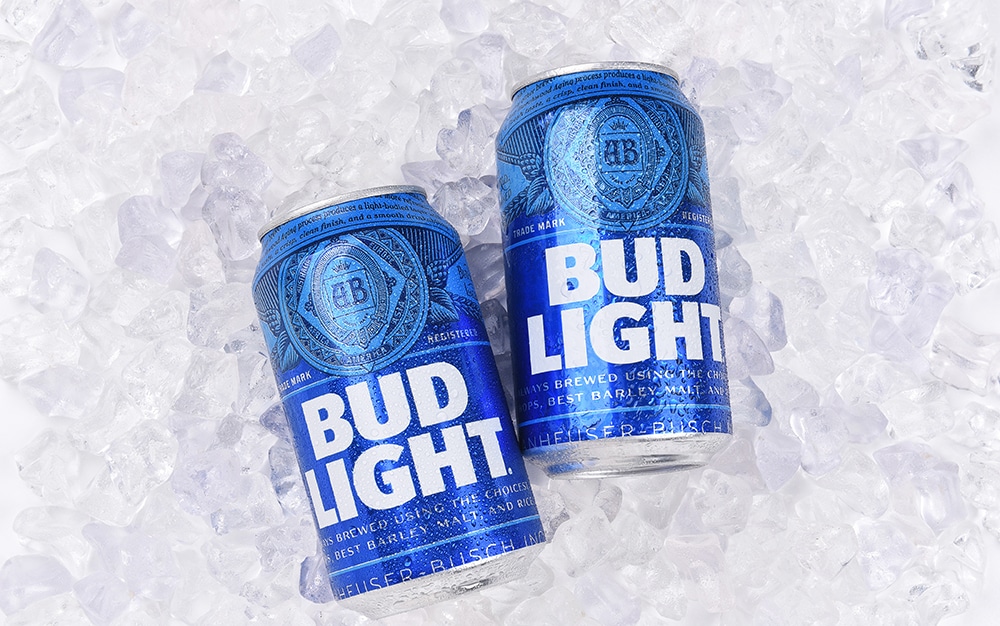For many Catholics, it came as a shock when Bud Light partnered with “trans influencer” Dylan Mulvaney to sell beer. What is going on here? Isn’t Budweiser the beer of flyover country, construction workers and dive bars? Why would they do this?
But these questions don’t get at the most serious problem for a Catholic. Isn’t it good to believe the truth and bad to believe falsehood? Isn’t it true that male and female are different by nature in God’s creation?
Dylan Mulvaney may say he is a female, and even believe it, and follow some stereotypes for women. But aren’t all these things false? And isn’t it always harmful to live by lies, not by the truth? And isn’t it deeply, deeply wrong to “influence” others, especially young people, to take pleasure in lies? So, why is Budweiser selling beer by promoting something that is deeply wrong?
Budweiser has no stake in the heartland
First, Budweiser has no real stake in heartland America. In no sense is Bud the St. Louis hometown craft beer of a German immigrant saloon operator and his descendants. All of that is only marketing hype, also known as make-believe.
Budweiser is an international brand. It has 14 breweries in China and is the fourth leading brand in China. Budweiser is a brand of Anheuser-Busch, which is wholly owned by AB InBev, a multinational liquor and beer company based in Belgium, with regional headquarters in São Paulo, London, Mexico City and Johannesburg, among other places. It sells Stella, Corona, Modelo, Rolling Rock, Beck’s and Labatt.
The more pertinent question is why Bud ever would be aligned with the concerns of the American heartland, not why it looks non-aligned.
You can get the spirit from the remarks of Bud Light’s formerly new VP for Marketing, Alissa Heinerscheid: “I’m a businesswoman. I had a really clear job to do when I took over Bud Light, and it was this brand is in decline. … It’s like we need to evolve and elevate this incredibly iconic brand. … What does evolve and elevate mean? It means inclusivity. It means shifting the tone. … I mean, Bud Light had been kind of a brand of fratty, kind of out-of-touch humor, and it was really important that we had another approach.”
Translation: Although she’s a businesswoman, and presumably wants to sell more beer, in the end, she and her company do not want a brand that caters to fratty, out-of-touch Americans. She is not one of them. She is an ambitious VP in a sprawling multi-national corporation. Or was. She’s apparently taken a “leave of absence” after the blowback from the Mulvaney partnership.
No apology will come
Second, it was simply impossible for the CEO of Annheuser-Busch to retract Bud Light’s arrangement with Mulvaney or to apologize. In his public statement, the most that he said was, “We never intended to be part of a discussion that divides people” — which is what my child says precisely when he is not apologizing (“I didn’t mean to”).
He then speaks of “the values upon which America was founded: freedom, hard work and respect for one another.” What a strange choice in the context! Please note what he did not mention. He did not refer to the family. He did not speak of fathers and mothers. He did not speak of safeguarding children. He did not refer to God’s creation. He did not refer to self-evident truths. He did not refer to any common good.
Let me translate for you his interpretation of American values: “freedom — the freedom of a man to identify as a woman; hard work — the work that goes into being a social influencer and making beer; respect for one another — respect for trans people like Dylan Mulvaney.”
As he put it, “I am responsible for ensuring that every consumer feels proud of the beer we brew.” That is to say, he is firmly convinced that the values of collaborating with Dylan Mulvaney are “American values.” And he will absolutely not risk a backlash against the brand by apologizing for its relationship with Dylan Mulvaney.
A boycott won’t work
Third — and the CEO and VP know this — no boycott of Bud Light will be successful. The reason is that boycotts in general are not successful. The logic of “collective action,” as economists call it, goes against a boycott. The group that benefits from the Dylan Mulvaney campaign, although it is small, is well organized and gains a big benefit; but the people who oppose it, although many, are diffuse, and they are not organized, and the inconvenience to each in boycotting the beer is greater than any harm each immediately perceived from the Mulvaney campaign.
The Bud Light campaign mainly harms the common good, not any individual. When Joe Rogan popped a can of Bud Light on his show and asked what’s the big deal, he was signaling his lack of care for the common good.
On the other hand, marketers are telling one another that the vast majority of TikTok users are between 20 and 35 years old. Mulvaney has over 10 million TikTok followers. One of his videos has been viewed more than 1 billion times. If you are looking to sell beer decades into the future, and you believe that you need to sell to this market, and you embrace a myth about social progress, you will dismiss the mainly older folks who bother to complain.
Some early reports said that the Mulvaney campaign cost AB InBev billions of dollars in market capitalization after a drop in its share price. Actually, the stock has recovered nearly all of that drop. Look again at the many brands which AB InBev sells around the world. Savvy traders, who understand what I just explained about boycotts, immediately bought on the dip.
Subjective, not rational relationships
Fourth, you must understand that the marketplace, for good or for ill, is a realm of what economists call “subjective preference.” Subjective preference is shown most obviously in tastes — you like anchovies on pizza, and I don’t. But supply and demand, and the price mechanism, work by abstracting from whether people “should” prefer what they do. And modern marketing techniques exploit this subjectivity. What’s the relationship between a cowboy on a horse and a cigarette? No rational relationship whatsoever. Between a trans influencer and a beer? Not a rational relationship, but a subjective sense of something new, breaking boundaries, dismissing conventions, being a bit outrageous and carefree.
Good old Adolphus Busch was the 21st of 22 children when he emigrated from Mainz to St. Louis in 1857 with three older brothers. Family, religion and neighborhood have always cabined in the subjective preferences that drive the market. But not any longer and certainly not for a $82 billion dollar company with 150,000 employees.
Why did you ever suppose that Budweiser was your friend? Don’t be taken for a fool.
Michael Pakaluk is a professor of ethics and social philosophy in the Busch School of Business at The Catholic University of America in Washington, D.C., and a member of the Pontifical Academy of St. Thomas Aquinas.





